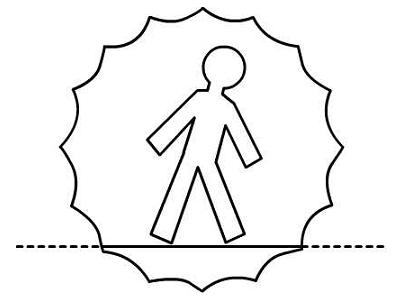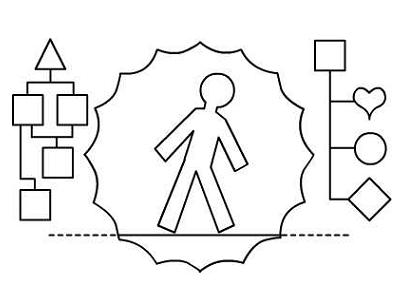Trending
Opinion: How will Project 2025 impact game developers?
The Heritage Foundation's manifesto for the possible next administration could do great harm to many, including large portions of the game development community.
Could two fundamental components of Experience begin to provide a basis for consensus?

Previous Post: Sentiology: The Study of Experience
In previous posts, the idea of studying Experience as a part of the study Game Design was discussed; what that would mean and what sources of reference can serve such study. The study of Experience may need to start with some definition of the fundamental components that make up Experience. Everyone should feel encouraged to join the discussion and comment on or debate the assertions presented. All relevant comments are welcome and appreciated.

Perception
Perception feeds Experience
Perception is understandably a primary focus of many reference sources on the subject of Experience. The primary inputs for Experience are our physical senses. But while the five senses may be ubiquitous components of Experience study, there is a strong potential for disparity between what is sensed and what is perceived. That is, it is widely recognized that while our senses have the ability to take in details of the world, our interpretation of those sensations is not as well defined, and in many cases beguiles the actual state of those details.1 Rather than include the literal details sensed of the world as a component of Experience, it stands to reason that it is our interpretation of those sensations; our Perception, that resides in Experience. The primary factor in determining how sensations are shaped into Perception is our contextual frame of reference.

Cognitive Models
Experience forms Cognitive Models2
Perception does not occur in a vacuum. Perception is the result of interpreting sensations according to one’s understanding of the world. In essence, sensations are compared to a Cognitive Model of the world and the aggregate results of any correlation or disparity to that model is what we call Perception. Our Cognitive Models of the world shape and are shaped by our Perception, but they are not the same as Perception. One can imagine something novel; something that does not exist either in the world or in one’s prior Cognitive Model of the world. This act alone suggests that Perception is not the whole of Experience; that our Cognitive Models of the world play a major role in Experience. Our use and manipulation of Cognitive Models (A.k.a., critical thinking) may not be a true sixth sense, but the results of thinking provide another form of cognitive input along with Perception.
1 Lotto, B. (2009). TED Talk: “Optical Illusions Show How We See” Online Video. [http://www.ted.com/talks/beau_lotto_optical_illusions_show_how_we_see.html]
2 Another word for a Cognitive Model is a schema, but here it is framed as an organization of schemata that encompasses everything we attend to within Experience. (i.e., an individual worldview)
Next Post: Memory and Prediction
Read more about:
BlogsYou May Also Like